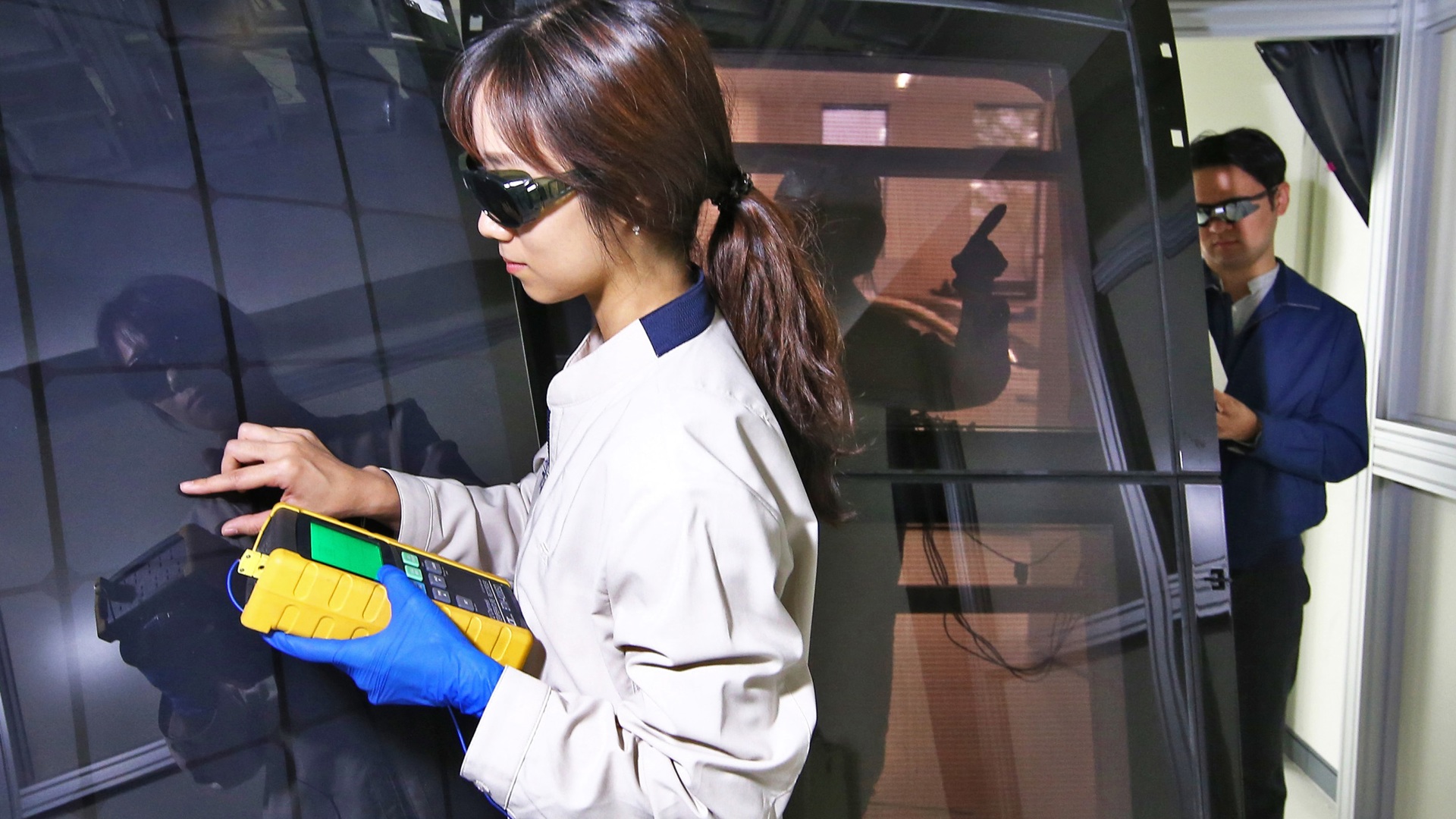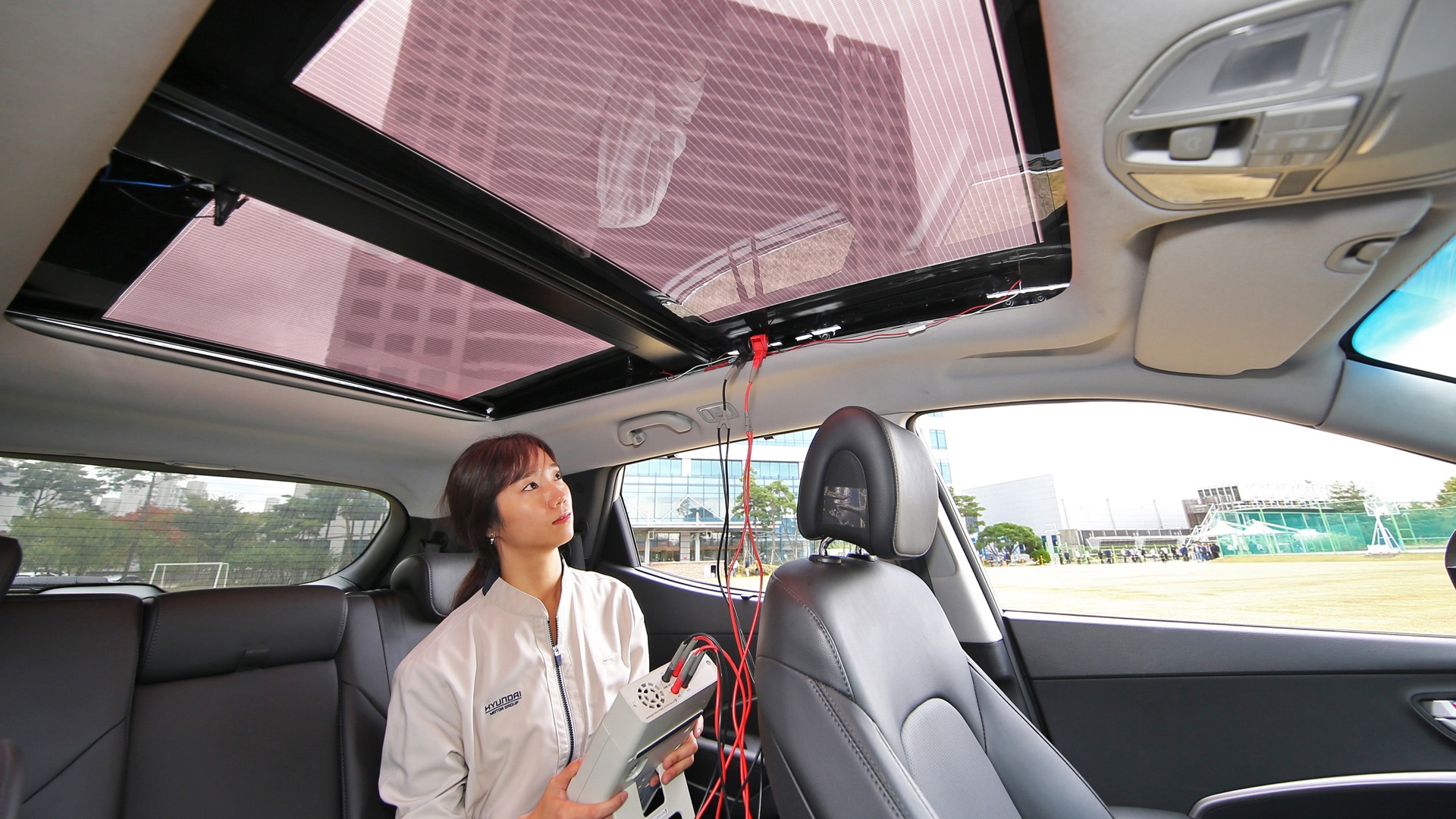Korean corporate cousins Hyundai and Kia are working on solar panel vehicle charging technology that will be incorporated into their gasoline, hybrid and electric car models starting in 2020.
The manufacturers say they're developing three types of solar cells designed to be installed in the roof panels and hoods of vehicles to help charge batteries, whether those be the 12-volt variety in a gasoline car or the high-voltage batteries used in hybrids and electrics.
A first-generation setup will be roof-mounted to hybrid models and promises the ability to charge the battery to 30 to 60 percent of its total capacity in a day, depending on weather conditions.
Internal combustion cars and electric vehicles will get a second-gen transparent panel to be used with a panoramic sunroof.
In hybrids and electrics, the solar power will be used to charge the drive battery and reduce the amount of time the car needs to be plugged in; gasoline cars will use the energy to charge the standard 12-volt battery to reduce load on the alternator and reduce fuel consumption.
Finally, a third-generation lightweight solar-lid system is the subject of a pilot study that would see panels fitted to structures that attach to the roof and hood of a car to maximize electricity generation.
The Hyundai Motor Group, the corporate entity that operates the Hyundai and Kia brands, says the first generation solar system will go into service in production vehicles globally "after 2019." We've reached out to the company to confirm that global launch includes Canada.



